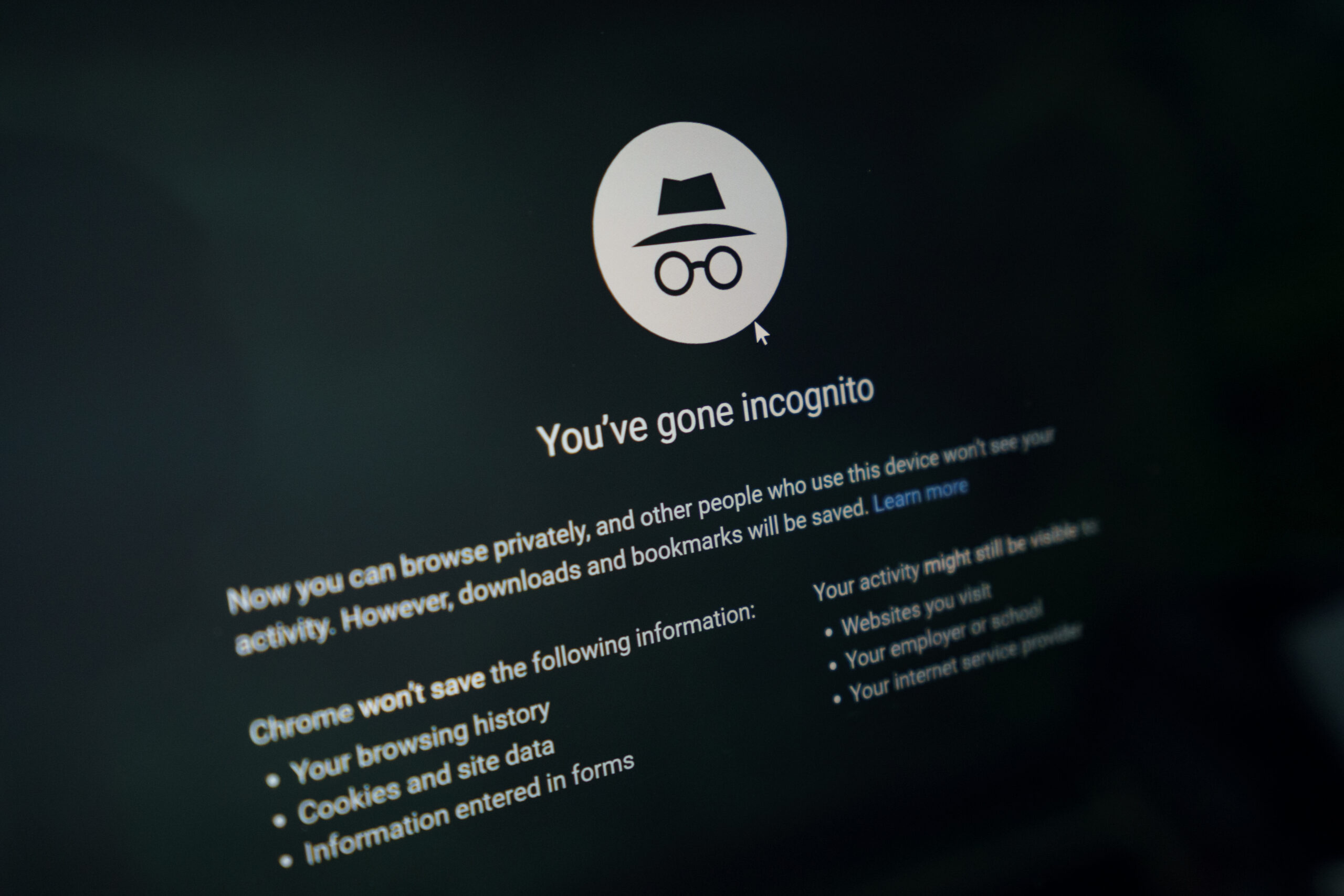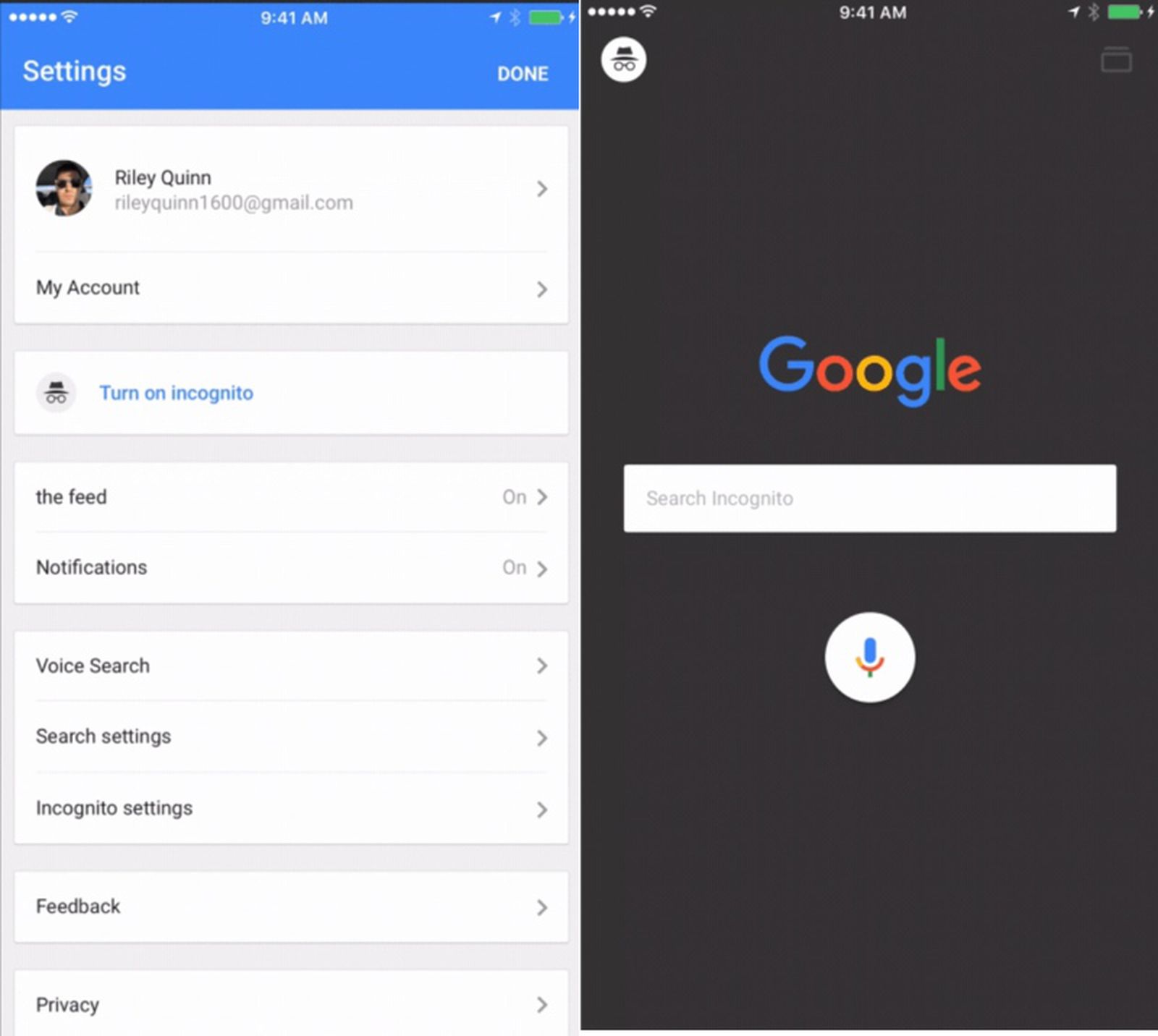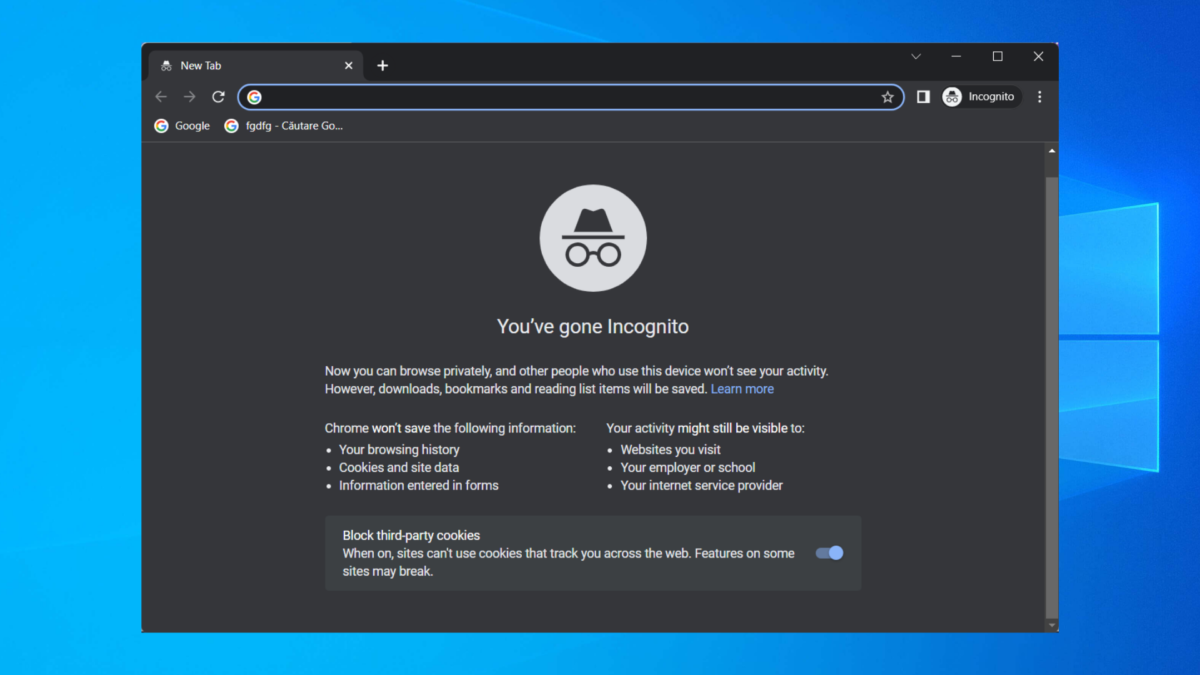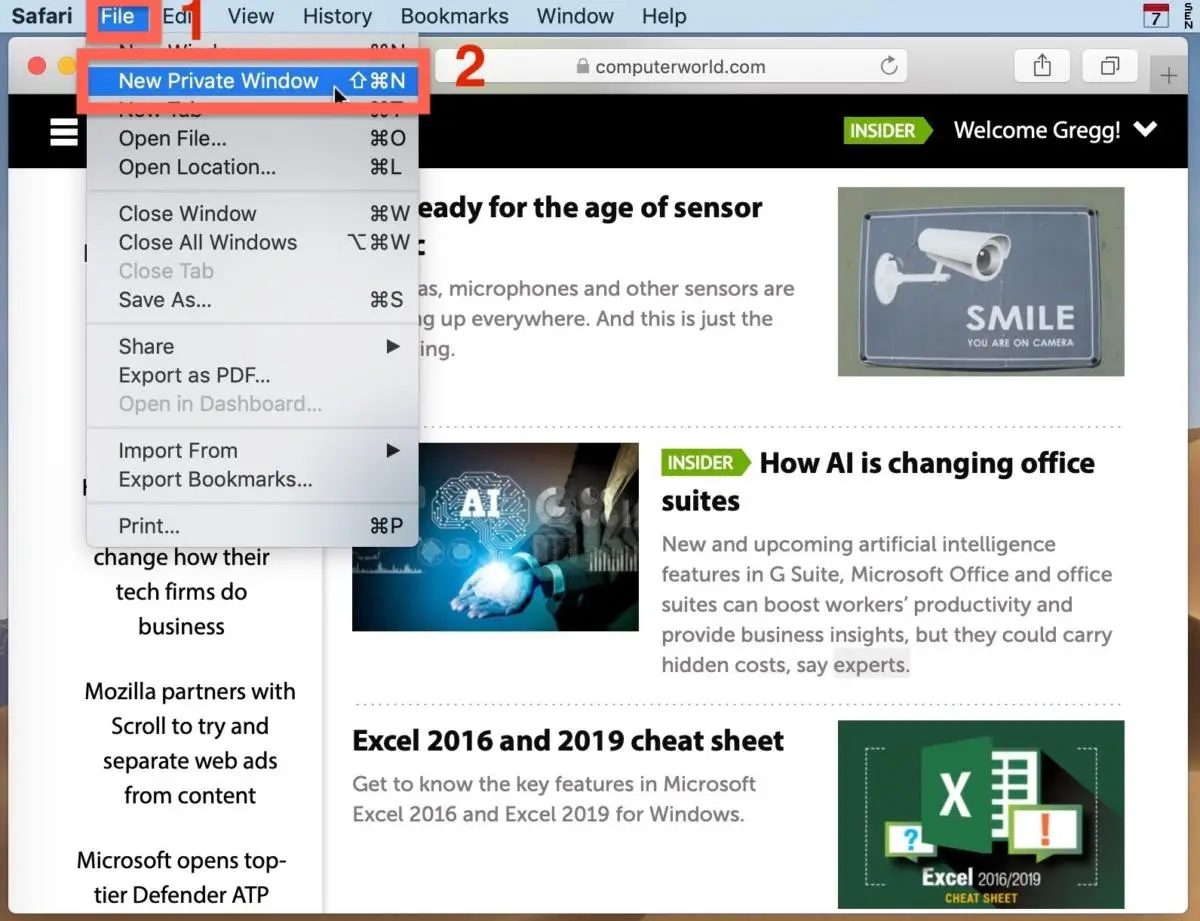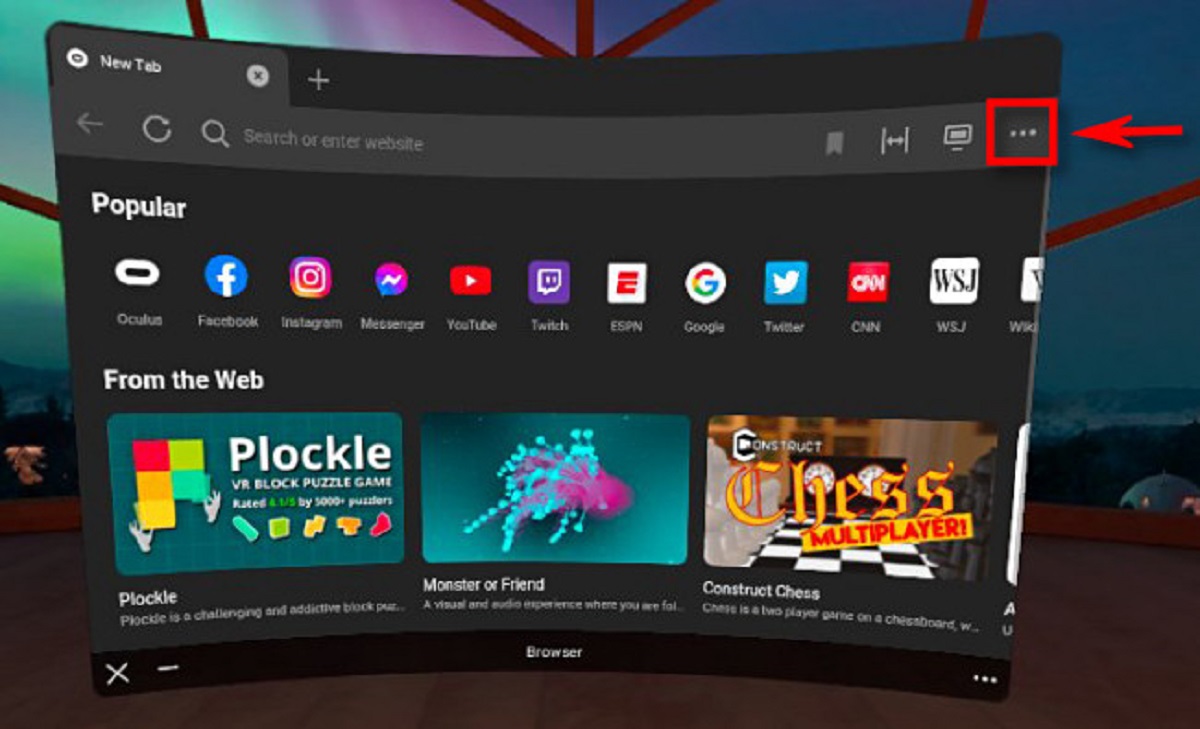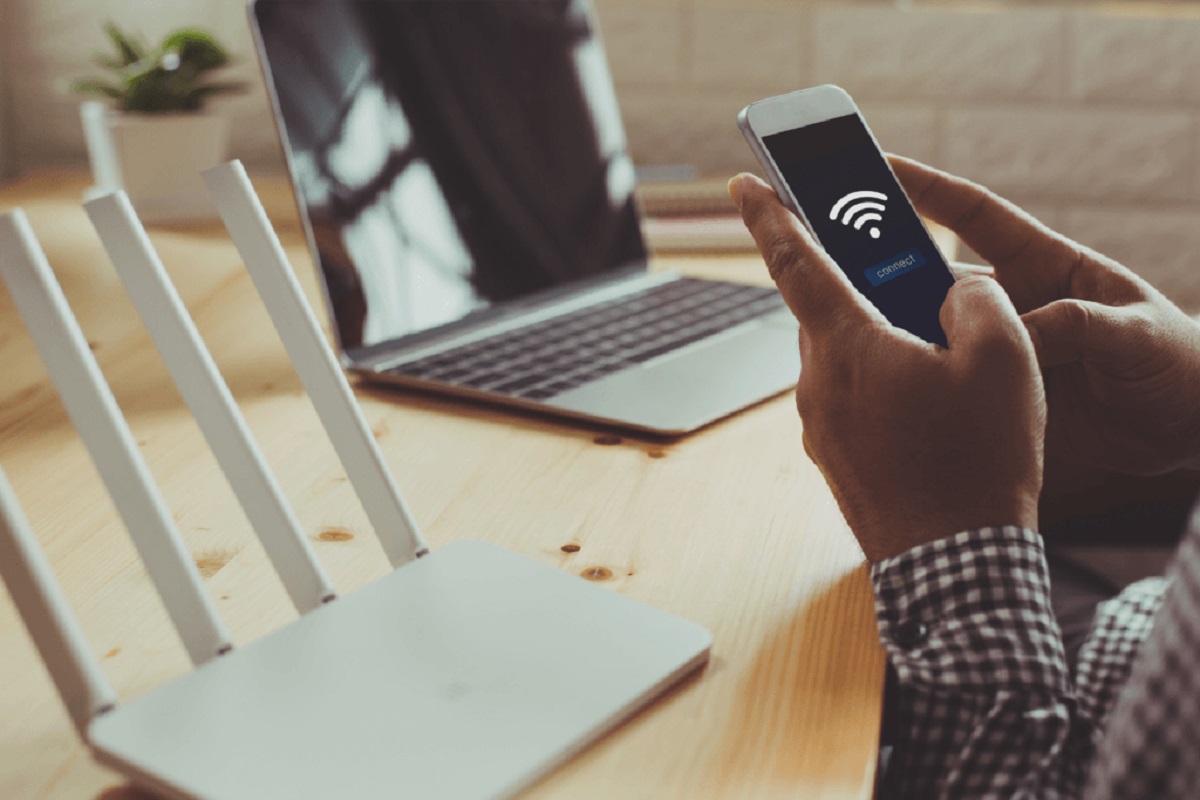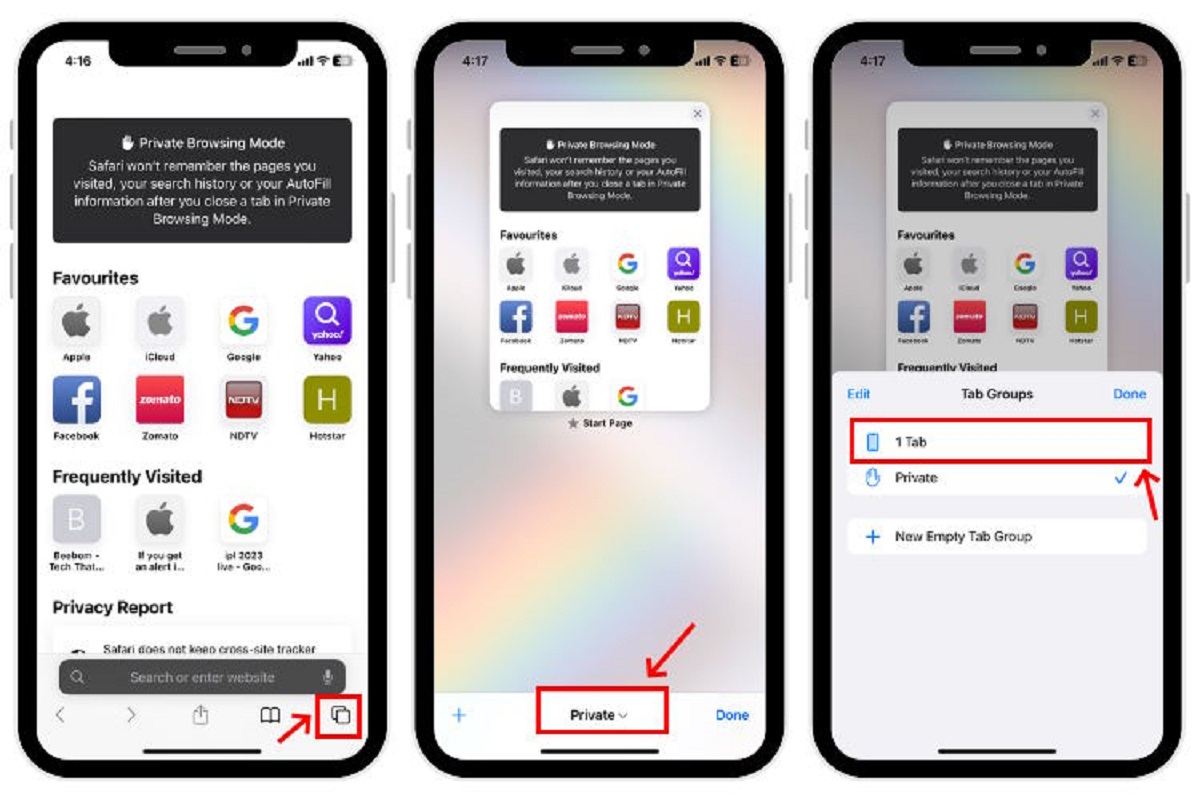What Does Incognito Mode Do?
Incognito mode, also known as private browsing or privacy mode, is a feature available in most popular web browsers that allows users to browse the internet without leaving any trace of their online activity on the device they are using. When you activate incognito mode, your browser does not record your browsing history, download history, or store any data such as cookies, form inputs, or search queries. Additionally, any files you download or bookmarks you create while in incognito mode are not saved.
The primary purpose of incognito mode is to provide users with a level of privacy and anonymity while browsing the internet. It is particularly useful for various scenarios, such as:
- Sharing a device: Incognito mode can be handy if you need to use a shared computer or device and don’t want your browsing history to be visible to others who may use the same device.
- Logging into multiple accounts: If you have multiple accounts on a particular website or service, you can use incognito mode to log in to one account without interfering with your sessions in other browser tabs.
- Researching sensitive topics: When conducting research on sensitive subjects or topics that you don’t want to be tied to your personal browsing history, incognito mode can help you keep your online activities discreet.
It’s important to note that while incognito mode can provide a level of privacy on the device you are using, it doesn’t make you completely anonymous online. It only prevents your browsing activities from being stored locally on your device. Your IP address, internet service provider (ISP), and the websites you visit can still track your online activities. Additionally, any activities you perform while logged into online accounts, such as social media or email services, can still be logged and associated with your account.
Overall, incognito mode is a useful tool for maintaining some level of privacy while browsing the internet. However, it’s important to remember that it is not a foolproof method for complete anonymity. If you require a higher level of privacy, consider using a virtual private network (VPN) or other specialized tools.
How Does Incognito Mode Work?
Incognito mode works by creating a temporary browsing session that operates separately from your regular browser session. When you open a new incognito window or tab, the browser will not save any history, cookies, or other browsing data associated with that specific session. Here’s a breakdown of how incognito mode works:
- No Browsing History: When you browse in incognito mode, your browser does not keep a record of the websites you visit. This means that when you close the incognito window or tab, there will be no evidence of your browsing history on that device.
- No Cookies: Cookies are small files that websites use to store information about your browsing preferences and activities. In incognito mode, your browser does not store or access cookies. This means that websites won’t be able to recognize you as a returning visitor or track your online behavior.
- No Form Inputs: In incognito mode, your browser does not store any data you enter into web forms, such as search queries, usernames, or passwords. This ensures that sensitive information isn’t stored locally on your device.
- No Downloads or Bookmarks: Any files you download or bookmarks you create while in incognito mode won’t be saved. This is beneficial if you’re working with temporary files or want to keep your browsing activities separate from your regular downloads and bookmarks.
- Separate Sessions: Incognito mode operates as a separate browsing session alongside your regular browser session. This means that you can have a non-incognito window open simultaneously while using incognito mode. This can be useful for comparing information or logging into multiple accounts simultaneously.
It’s important to note that while incognito mode provides a level of privacy on your local device, it does not make you completely invisible online. Your IP address, internet service provider (ISP), and the websites you visit can still track your online activities, even if your browsing history is not saved locally. Additionally, activities you perform while logged into online accounts may still be logged and associated with your account.
Now that we understand how incognito mode works, let’s explore whether websites, ISPs, employers, school networks, and other devices on your network can see your activity while in incognito mode.
Can Websites Track Your Activity in Incognito Mode?
While incognito mode offers some level of privacy, it does not completely prevent websites from tracking your online activity. Websites can still gather certain information about your browsing behavior, including:
- IP Address: Your IP address is a unique identifier assigned to your device when you connect to the internet. In incognito mode, your IP address is not hidden, so websites can still see and track your general location.
- Metadata: Metadata refers to information about your browsing session, such as the time of your visit, the pages you accessed, and the duration of your stay. While incognito mode does not save this data locally, websites can collect and store this information on their servers.
- Third-party Tracking: Many websites use third-party tracking tools, such as cookies or scripts, to monitor your online behavior. These tracking tools may still operate in incognito mode and can track your activities across different websites.
- Logged-in Accounts: If you log into an online account, such as social media or email, in incognito mode, the website can still link your activities to your account. This means that your actions can be logged and associated with your profile.
While incognito mode may prevent your browsing history and other locally stored data from being saved, it does not provide complete anonymity or prevent websites from gathering some information about your online activities.
It’s worth noting that using additional privacy-enhancing measures, such as ad blockers, anti-tracking extensions, or browser settings, can further limit the data websites can collect about your browsing habits. However, keep in mind that some websites may detect these measures and may restrict access to their content unless you disable them.
In the next sections, we will discuss whether your internet service provider (ISP), employer, school or university network, and other devices on your network can see your activity while in incognito mode.
Can Your Internet Service Provider (ISP) See Your Activity in Incognito Mode?
While incognito mode can hide your browsing history from being stored locally on your device, it does not hide your online activities from your internet service provider (ISP). Your ISP is still able to see your internet traffic, including the websites you visit, regardless of whether you are in incognito mode or not.
When you connect to the internet, your internet traffic passes through your ISP’s servers. In the process, your ISP assigns an IP address to your device and routes your traffic to the requested websites. While the websites themselves may not see your browsing history in incognito mode, your ISP can still monitor and log your online activities.
In many cases, ISPs do track and store user data, including the websites visited, the duration of each visit, and the files downloaded. This data can be used for various purposes, such as improving network performance, complying with legal requirements, or even targeted advertising.
It’s important to understand that your ISP can potentially access your browsing history and online activities through other means, such as deep packet inspection (DPI) technology. This technology allows ISPs to analyze the content of your internet traffic, even if the data is encrypted. While the use of DPI by ISPs varies, it is a possibility to consider.
However, it’s worth noting that the extent to which ISPs track and monitor user data can depend on jurisdiction and local privacy regulations. In some countries, ISPs may be legally required to retain customer data for a specified period, while in others, they may have more flexibility in terms of data retention and privacy practices.
If you are concerned about your ISP tracking your online activities, you may consider using a virtual private network (VPN). A VPN encrypts your internet traffic and masks your IP address, making it more difficult for your ISP to monitor your online activities. However, it’s essential to choose a reputable VPN service that prioritizes user privacy.
Understanding that your ISP can see your activity in incognito mode is crucial for maintaining a realistic expectation of privacy while browsing the internet. In the following sections, we will discuss whether your employer, school or university network, and other devices on your network can see your activity in incognito mode.
Can Your Employer See Your Activity in Incognito Mode?
While incognito mode can provide some level of privacy, it is important to note that your employer may still be able to monitor your online activities, even if you are using incognito mode. Here’s why:
When you are connected to your employer’s network, they often have the ability to monitor and track your internet usage. This means that they can potentially see the websites you visit, regardless of whether you are in incognito mode or not.
Employers may use various methods to monitor employee internet activity, such as:
- Firewall and Network Monitoring: Employers can implement network monitoring tools or firewalls that track and log internet traffic to detect any inappropriate or unauthorized use of company resources.
- Employee Monitoring Software: Some companies use employee monitoring software, which can capture screenshots, track keystrokes, monitor email communications, and even record browsing history. This software can often bypass incognito mode and provide employers with detailed insights into employees’ online activities.
- Network Policies and User Agreements: Employers may have explicit policies in place that govern employee internet usage. These policies may state that all internet activity on company devices or networks is subject to monitoring and may outline the consequences of violating these policies.
- Endpoint Security Measures: Employers may have endpoint security measures in place, such as data loss prevention (DLP) tools, that monitor and restrict certain activities, including web browsing, file downloads, and transfers.
It’s important to familiarize yourself with your company’s policies regarding internet usage and privacy. Understanding what is acceptable and what is not can help you make informed decisions and ensure that your online activities align with your employer’s guidelines.
Additionally, keep in mind that if you are using a company-provided device or accessing the internet through a corporate network, your employer may have the right to access and monitor your activities, regardless of whether you are using incognito mode.
To maintain a separation between personal and work-related activities, it is generally advisable to use your personal devices and networks when engaging in private or sensitive online activities.
In the next sections, we will explore whether school or university networks and other devices on your network can see your activity while in incognito mode.
Can School or University Networks See Your Activity in Incognito Mode?
When using school or university networks, it’s important to understand that administrators typically have the ability to monitor and track internet activity on their networks, even if you are browsing in incognito mode. Here’s why:
School or university networks are usually equipped with network monitoring tools and security measures that allow administrators to monitor and log internet traffic. These tools can track which websites you visit, the duration of your visits, and even the content you access.
While incognito mode can prevent your browsing history from being stored locally on your device, it does not hide your online activities from the network administrators. They can still see the URLs you visit, the amount of data transferred, and other metadata related to your internet sessions.
In addition to network monitoring tools, school or university administrators may also employ content filtering technologies. These technologies can restrict access to specific websites or categories of websites deemed inappropriate or unrelated to educational purposes.
It’s important to familiarize yourself with the acceptable use policies and guidelines set by your school or university. These policies typically outline what is considered acceptable internet usage and what activities are forbidden. Violating these policies may result in disciplinary action.
Similarly, if you are using a school or university-issued device, such as a laptop or tablet, it is important to be aware that these devices may have additional monitoring software installed. This software can track your internet activity, even if you are in incognito mode.
If you wish to maintain a higher level of privacy while using school or university networks, you may consider using a virtual private network (VPN). A VPN can encrypt your internet traffic, making it more difficult for network administrators to monitor and track your online activities. However, it’s important to review your school’s policies regarding VPN usage, as some institutions may prohibit their use.
Remember, while incognito mode offers some privacy benefits, it is not a guaranteed method for complete anonymity on school or university networks. It’s always best to exercise caution and prioritize your education-related activities when using these networks.
In the following section, we will discuss whether other devices connected to the same network can see your activity while in incognito mode.
Can Other Devices on Your Network See Your Activity in Incognito Mode?
When using a shared network, such as a Wi-Fi network at home or a public network, other devices on the same network do not have direct visibility into your browsing activity, even if you are using incognito mode. Here’s why:
Incognito mode creates a separate browsing session within your web browser, isolating your browsing activity from other devices on the network. This means that the websites you visit and the data you transmit are not directly accessible to other devices on the network.
However, it’s essential to remember that while other devices may not be able to see your specific browsing activity, certain network administrators or advanced users may still be able to gather information about your online behavior through indirect means. Here are a few scenarios to consider:
- Network Monitoring Tools: Network administrators or individuals with advanced technical knowledge may have tools in place, such as network sniffers or monitoring software, that can capture and analyze network traffic. While incognito mode provides some level of privacy, these tools can potentially intercept and analyze your network communications.
- Website Tracking: While other devices on the network cannot see your specific activity in incognito mode, if you visit websites that use tracking technologies, such as cookies or third-party analytics scripts, those websites may still recognize you as a user and track your online behavior across different browsing sessions.
- Device Sharing: If you are using a shared device or a device that is connected to a network that is used by multiple individuals, those individuals may be able to access your browsing history or other saved data on that particular device. Incognito mode only prevents your activity from being saved within the browser itself.
If you are concerned about the privacy of your online activities on a shared network, there are a few steps you can take to enhance your security:
- Use Encrypted Connections: Make sure to visit websites that use secure HTTPS connections whenever possible. This helps encrypt your data and protect it from being intercepted or tampered with.
- Use a VPN: Consider using a virtual private network (VPN) to further encrypt your internet traffic and make it more difficult for others on the network to monitor your activities. A VPN can add an extra layer of security and privacy, especially when connected to public Wi-Fi networks.
- Regularly Clear Your Browsing Data: Whether you are using incognito mode or not, it’s a good practice to regularly clear your browsing history, cookies, and other temporary data to minimize any potential privacy risks.
By taking these precautions, you can enhance the privacy and security of your online activities, even while using a shared network.
In the next section, we will explore whether websites or apps you log into can see your activity while in incognito mode.
Can Websites or Apps You Log Into See Your Activity in Incognito Mode?
When using incognito mode, websites or apps that you log into can still see and track your activity to some extent. While incognito mode prevents your browsing history from being saved on your device, it does not completely hide your online activities from the websites or apps you interact with. Here’s why:
When you log into a website or app, you typically provide some form of identification, such as a username or email address. This identification allows the website or app to associate your actions and activities with your account, even if you are using incognito mode. As a result, the website or app can track your actions, such as the pages you visit, the content you interact with, and the purchases you make.
While the website or app itself may not see your browsing history in incognito mode, they can still collect and store data about your interactions with their platform. This data is often used for various purposes, such as personalizing your experience, delivering targeted content or ads, and analyzing user behavior.
It’s important to understand that even if you use incognito mode, certain tracking technologies, such as cookies or scripts, can still operate and track your activities across different sessions. These tracking technologies can remember your preferences, save your login credentials, or provide personalized recommendations. This can happen regardless of whether you are browsing in incognito mode or the regular browsing mode.
To enhance your privacy and limit the tracking of your online activities while using websites and apps, you can take a few steps:
- Review Privacy Policies: Familiarize yourself with the privacy policies of the websites and apps you use. Understand how they collect and use your data and whether they share it with third parties.
- Manage Account Settings: Explore the privacy settings within your accounts and adjust them according to your preferences. Consider opting out of personalized ads or disabling tracking features if they are available.
- Use Browser Extensions: Install privacy-focused browser extensions that can block tracking technologies and prevent websites and apps from gathering your data.
- Regularly Clear Your Cookies: Clearing your cookies and other browsing data regularly can help limit the long-term tracking of your online activities by websites and apps.
Remember that while incognito mode provides some privacy benefits, it does not guarantee complete anonymity or prevent websites and apps from tracking your activities while logged in. Being mindful of the data you share and taking steps to protect your privacy can help maintain a better level of control over your online interactions.
In the next section, we will address whether your search history can still be saved while using incognito mode.
Can Your Search History Still Be Saved in Incognito Mode?
Incognito mode is designed to prevent your browsing history from being saved on your device, but it does not completely eliminate the possibility of your search history being saved or tracked. Here’s why:
When you use a search engine in incognito mode, such as Google or Bing, your search queries are not saved in your local browsing history. However, the search engine itself may still collect and store your search history, even in incognito mode. This is done to improve search results, personalize your experience, and provide targeted ads based on your search behavior.
While your search history may not be visible on your device, the search engine may use technologies like cookies or device fingerprinting to track your activities and associate them with your IP address or other identifying information. This allows the search engine to create a profile of your interests and preferences, even if you are browsing in incognito mode.
It’s important to note that the methods and extent of search engine data collection can vary between providers. Some search engines may retain search history for a limited period, while others may retain it indefinitely. Additionally, search engines may have different privacy policies and data handling practices, so it’s important to review and understand the policies of the search engine you are using.
To enhance your privacy and limit the storage of your search history, consider these tips:
- Use Privacy-Oriented Search Engines: Consider using search engines that prioritize user privacy and do not track or store search history, such as DuckDuckGo or Startpage.
- Clear Your Search History: Even in incognito mode, it’s a good practice to regularly clear your search history and cookies to minimize the amount of data that search engines can associate with your profile.
- Disable Search History Options: Some search engines offer options to disable search history or personalized search results. By accessing the settings of the search engine, you may be able to opt-out of these features.
- Use a VPN: Consider using a virtual private network (VPN) to further protect your privacy while browsing, as it encrypts your internet traffic and makes it difficult for search engines and other parties to track your online activities.
While incognito mode can prevent your local browser from saving your search history, it’s important to be aware that search engines themselves may still collect and store this information. By taking steps to protect your privacy and being mindful of the search engine you use, you can have better control over your online search activities.
In the next section, we will address the topic of whether law enforcement or government agencies can see your activity while in incognito mode.
Can Law Enforcement or Government Agencies See Your Activity in Incognito Mode?
While incognito mode can provide some level of privacy, it’s important to understand that law enforcement and government agencies may still be able to access and monitor your online activities, even if you are using incognito mode. Here’s why:
Law enforcement agencies and government organizations have capabilities and legal authority that allow them to bypass certain privacy measures. They can employ various techniques to gather information about your online activities, including those performed in incognito mode:
- Internet Service Provider (ISP) Cooperation: Law enforcement agencies can request information from your ISP, such as your IP address, which can be tied to your online activities. This enables them to track your internet traffic, even if you are using incognito mode.
- Warrant or Court Orders: Government agencies can obtain warrants or court orders to access your personal records, including your online activities. This can involve accessing your browsing history, search queries, or other relevant data, regardless of your browsing mode.
- Advanced Surveillance Technology: Law enforcement agencies may have access to sophisticated surveillance tools that can monitor internet traffic, intercept communications, and even gather data from encrypted connections.
While using incognito mode can help protect your browsing history from being stored locally on your device, it does not shield your activities from lawful interception by authorities.
It’s important to note that the extent to which law enforcement or government agencies can access your online activities can vary depending on your jurisdiction and the applicable laws. Privacy laws and regulations differ around the world, and authorities may have different levels of authority and oversight.
If you have concerns about your privacy or the potential for government surveillance, consider taking steps to enhance your online security:
- Use Strong Encryption: Utilize encrypted messaging apps, secure email services, and browse websites that use HTTPS encryption to protect your communication and data.
- Consider a VPN: Use a reputable and trustworthy virtual private network (VPN) to encrypt your internet traffic and mask your IP address, making it more difficult for authorities to monitor your activities.
- Stay Informed: Stay updated on the privacy laws and regulations in your jurisdiction to better understand your rights and responsibilities when it comes to online privacy.
While incognito mode can provide some level of privacy, it is not a foolproof method to protect your online activities from law enforcement or government agencies with the necessary authority to access your information. It is important to be aware of the broader legal and regulatory landscape and take appropriate steps to safeguard your privacy and security.
Conclusion
Incognito mode, available in most popular web browsers, offers users a level of privacy by not storing browsing history, cookies, or other local data on their devices. However, it is important to understand the limitations of incognito mode and how it interacts with various entities. While incognito mode can prevent your browsing history from being saved on your device, it does not guarantee complete anonymity or privacy.
Websites can still track certain aspects of your online behavior, including your IP address and metadata associated with your visit. Internet service providers (ISPs) have the ability to see your internet traffic, regardless of whether you are in incognito mode. Employers and school or university networks may have monitoring tools in place that can access your browsing activities. Additionally, other devices on the shared network may indirectly capture information about your online behavior.
Furthermore, websites or apps that you log into can still collect and store data about your interactions, even in incognito mode. Search engines may still track your searches and associate them with your user profile. It’s crucial to be aware of the privacy policies and settings of the services you use, and take steps to manage your online privacy accordingly.
While incognito mode is useful for maintaining privacy on your local device, it does not protect against surveillance by law enforcement or government agencies. Authorities may have the means and legal authority to access your online activities through various methods, such as cooperation with ISPs or the use of surveillance technology.
To enhance your privacy and security while browsing the internet, consider additional measures such as using virtual private networks (VPNs), practicing secure browsing habits, and staying informed about privacy laws and regulations in your jurisdiction.
Understanding the capabilities and limitations of incognito mode can help you make informed decisions about your online privacy. By combining technologies, best practices, and an awareness of potential risks, you can better protect your personal data and mitigate privacy concerns in an increasingly connected world.







